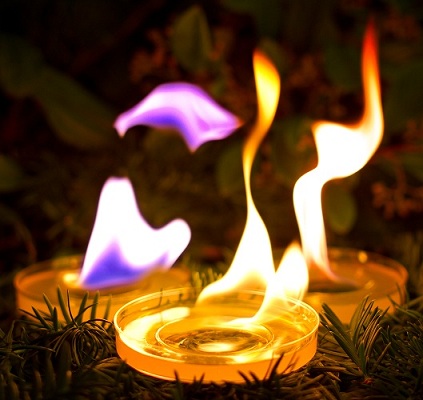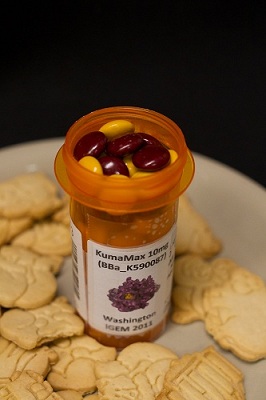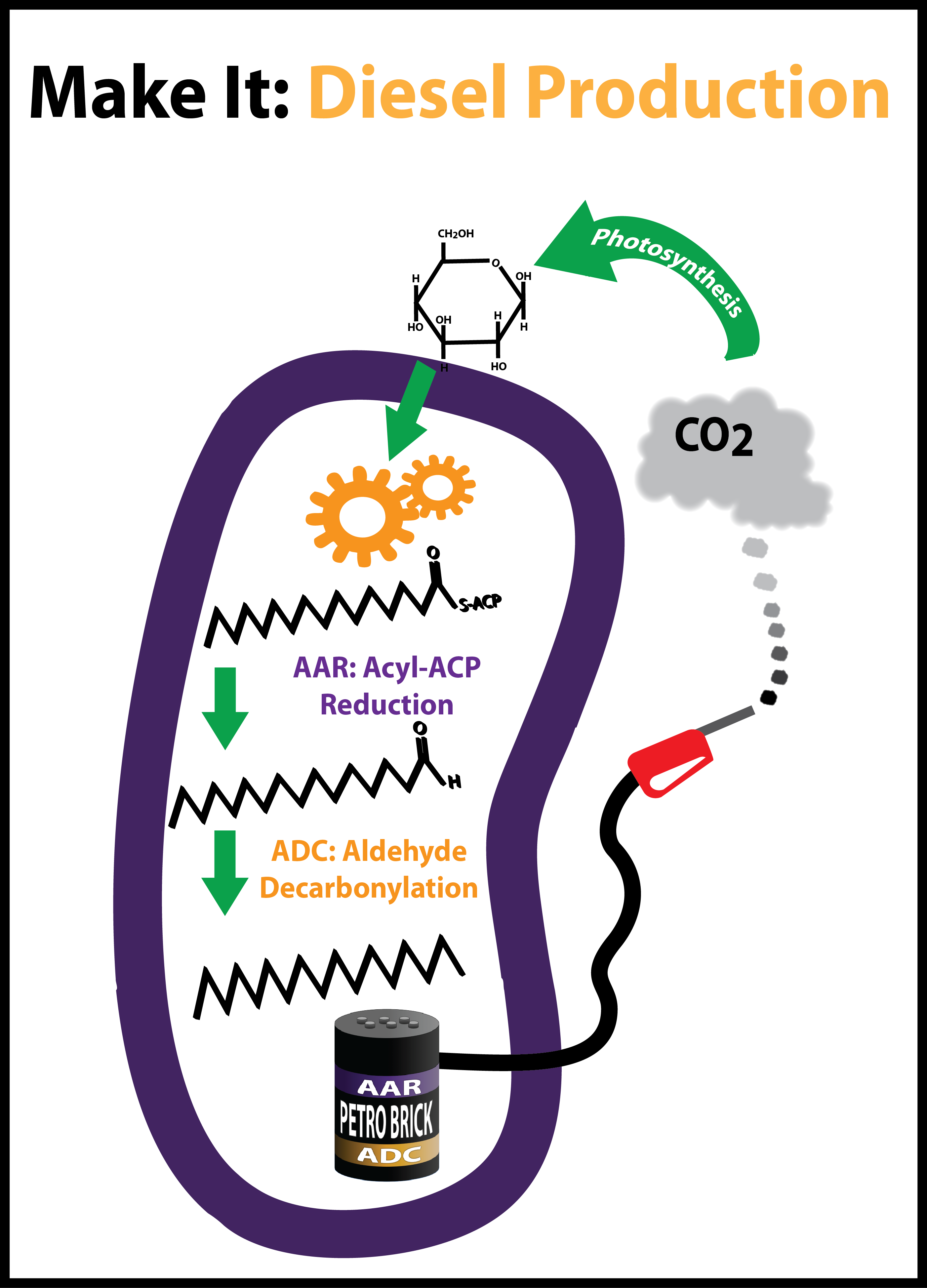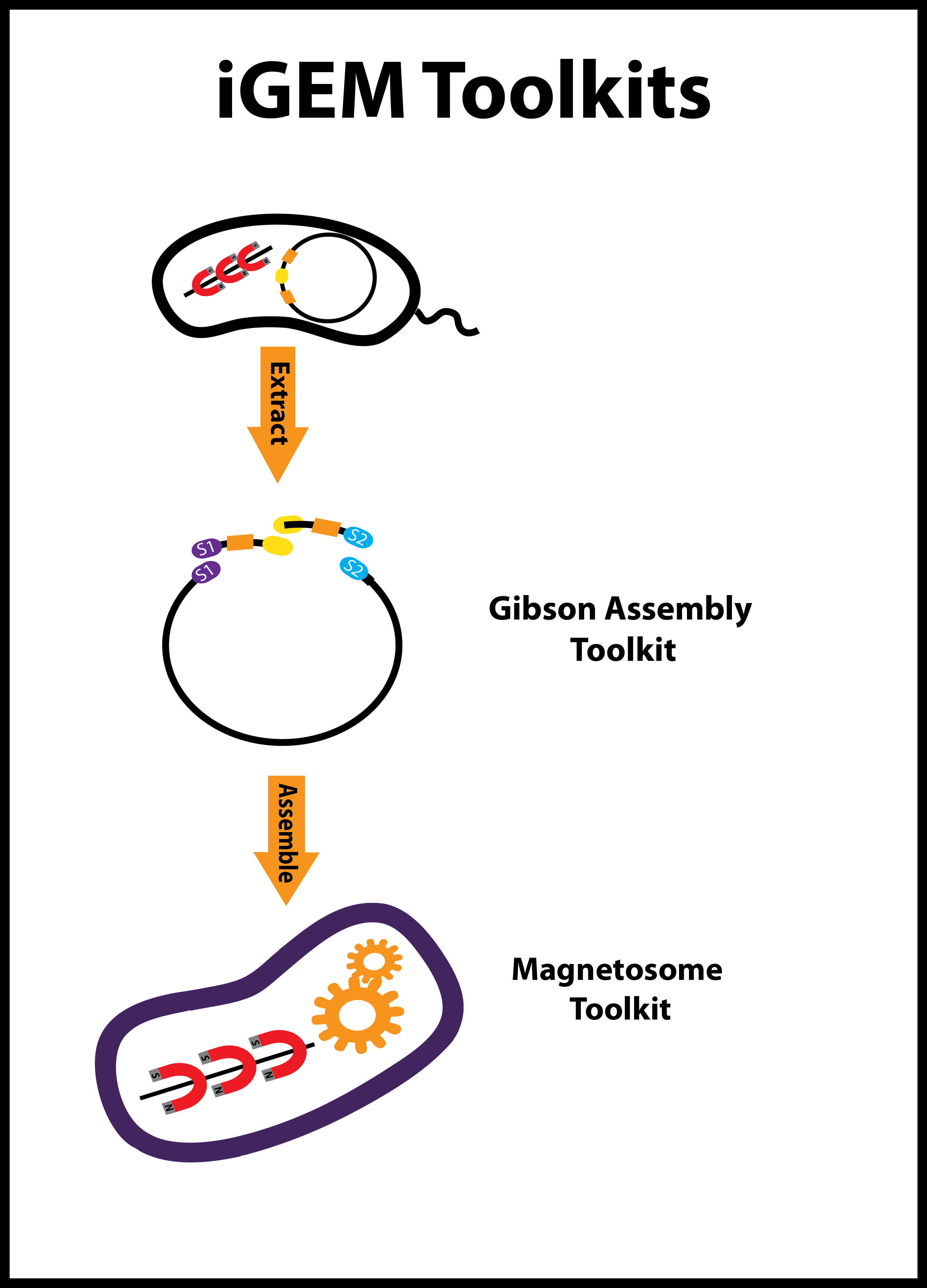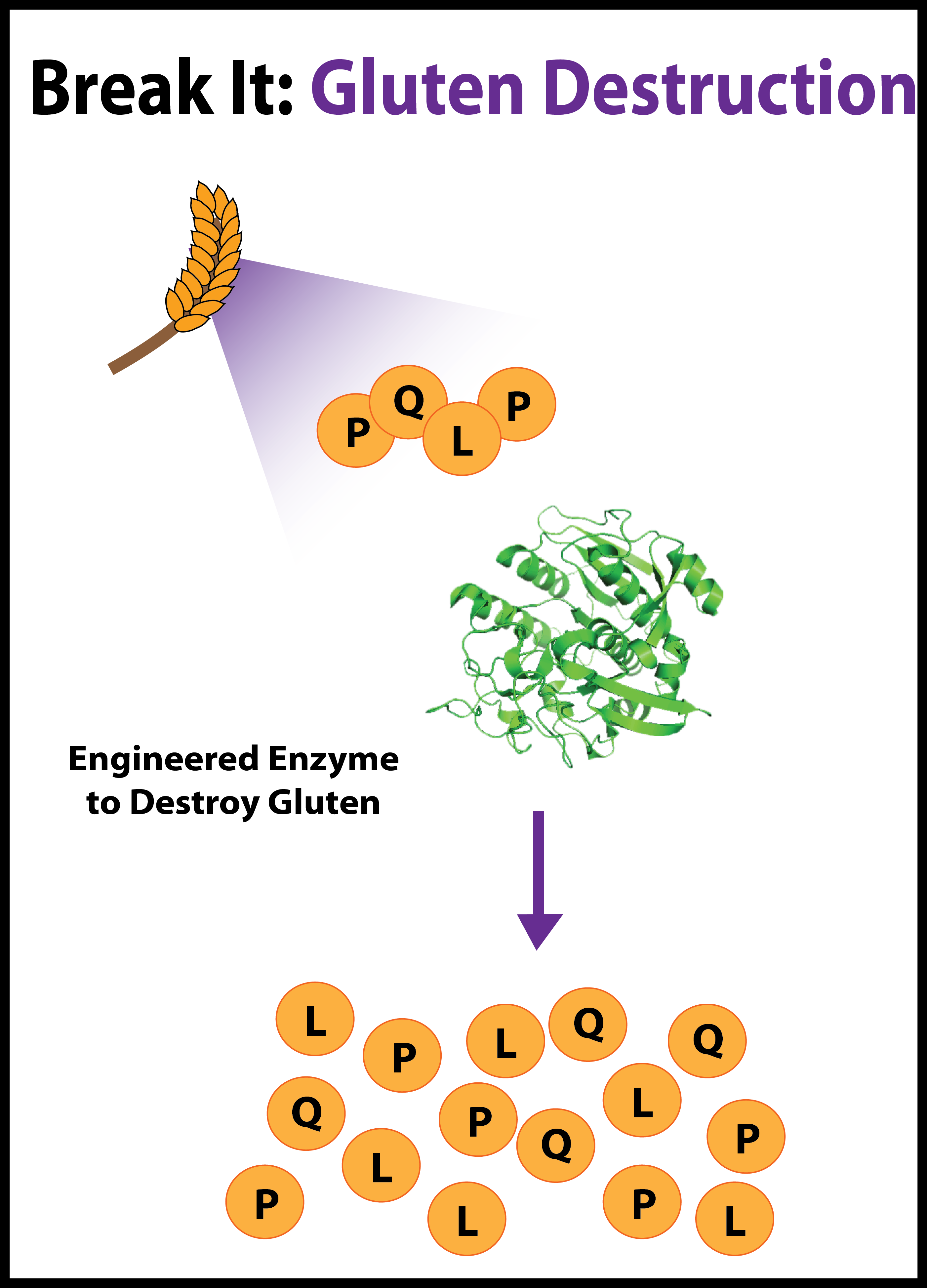Team:Washington
From 2011.igem.org
(→Make it or Break it: Diesel Production and Gluten Destruction, the Synthetic Biology Way) |
|||
| (48 intermediate revisions not shown) | |||
| Line 2: | Line 2: | ||
__NOTOC__ | __NOTOC__ | ||
| - | ='''Make | + | <html><meta name="google-site-verification" content="fg3_xZB6BF10NZTT7oSIbF6AmRx0o-b-VZdgok0O3Ok" /></html> |
| + | =<center>'''Make It or Break It: <br/> Diesel Production and Gluten Destruction, the Synthetic Biology Way'''</center>= | ||
| - | < | + | <center>Synthetic biology holds great promise regarding the production of important compounds, and the degradation of harmful ones. This summer, we harnessed the power of synthetic biology to meet the world’s needs for fuel and medicine.</center> |
| - | [[File:Washington_Spacer.jpg| | + | <br/> |
| - | [[File:Washington_OSLI.png|frameless|border|link=http://www.osli.ca|Oil Sands Leadership Intiative]] | + | [[Image:Washington_Fire.jpg|left|320px|borderless|link=https://2011.igem.org/Team:Washington/Alkanes/Background]] |
| - | [[File:Washington_UniversitySeal.gif|frameless|border|link= | + | [[Image:Washington_Bottle.jpg|right|200px|borderless|link=https://2011.igem.org/Team:Washington/Celiacs/Background]] |
| - | [[File: | + | |
| - | [[File:Washington_ARPA-E_Logo.png|frameless|border|link=http://arpa-e.energy.gov/ProgramsProjects/Electrofuels.aspx|Advanced Research Projects Agency - Energy]] | + | [https://2011.igem.org/Team:Washington/Alkanes/Background '''Make It: Diesel Production'''] We constructed a strain of ''Escherichia coli'' that produces a variety of alkanes, the main constituents of diesel fuel, by introducing a pair of genes recently shown to convert fatty acid synthesis intermediates into alkanes. |
| + | |||
| + | [https://2011.igem.org/Team:Washington/Celiacs/Background '''Break It: Gluten Destruction'''] We identified a protease with gluten-degradation potential, and then reengineered it to have greatly increased gluten-degrading activity, allowing for the breakdown of gluten in the digestive track when taken in pill form. | ||
| + | |||
| + | [https://2011.igem.org/Team:Washington/Magnetosomes/Background '''iGEM Toolkits'''] To enable next-generation cloning of standard biological parts, we built BioBrick vectors optimized for Gibson assembly and used them to create the Magnetosome Toolkit: a set of 18 genes from an essential operon in magnetotactic bacteria which we are characterizing to create magnetic ''E. coli''. | ||
| + | |||
| + | |||
| + | [[File:Washington_Spacer.jpg|1px]] | ||
| + | [[Image:UW Diesel Front Page.png|300px|link=https://2011.igem.org/Team:Washington/Alkanes/Background]] | ||
| + | [[File:Washington_Spacer.jpg|20px]] | ||
| + | [[Image:UW Toolkits Front Page.png|300px|link=https://2011.igem.org/Team:Washington/Magnetosomes/Background]] | ||
| + | [[File:Washington_Spacer.jpg|20px]] | ||
| + | [[Image:UW Gluten Front Page.png|300px|link=https://2011.igem.org/Team:Washington/Celiacs/Background]] | ||
| + | [[File:Washington_Spacer.jpg|5px]] | ||
| + | |||
| + | |||
| + | <br/> | ||
| + | [[File:Washington_Spacer.jpg|25px]] | ||
| + | [[File:Washington_OSLI.png|frameless|border|150px|link=http://www.osli.ca|Oil Sands Leadership Intiative]] | ||
| + | [[File:Washington_Spacer.jpg|25px]] | ||
| + | [[File:Washington_UniversitySeal.gif|frameless|border|100px|link=http://www.washington.edu|University of Washington]] | ||
| + | [[File:Washington_Spacer.jpg|25px]] | ||
| + | [[File:Washington_ARPA-E_Logo.png|frameless|border|150px|link=http://arpa-e.energy.gov/ProgramsProjects/Electrofuels.aspx|Advanced Research Projects Agency - Energy]] | ||
| + | [[File:Washington_Spacer.jpg|25px]] | ||
| + | [[File:Washington2011_Hhmi_362_72.jpg|link=http://www.hhmi.org/|Howard Hughes Medical Institute]] | ||
| + | [[File:Washington_Spacer.jpg|25px]] | ||
| + | [[File:Washington2011_NSFlogo.jpg|frameless|border|link=http://www.nsf.gov/|National Science Foundation]] | ||
| + | [[File:Washington_Spacer.jpg|25px]] | ||
| + | [[File:Washington_Anaspec.gif|frameless|border|100px|link=http://www.anaspec.com|Anaspec]] | ||
Latest revision as of 17:01, 2 December 2011
Make It or Break It:
Diesel Production and Gluten Destruction, the Synthetic Biology Way
Diesel Production and Gluten Destruction, the Synthetic Biology Way
Make It: Diesel Production We constructed a strain of Escherichia coli that produces a variety of alkanes, the main constituents of diesel fuel, by introducing a pair of genes recently shown to convert fatty acid synthesis intermediates into alkanes.
Break It: Gluten Destruction We identified a protease with gluten-degradation potential, and then reengineered it to have greatly increased gluten-degrading activity, allowing for the breakdown of gluten in the digestive track when taken in pill form.
iGEM Toolkits To enable next-generation cloning of standard biological parts, we built BioBrick vectors optimized for Gibson assembly and used them to create the Magnetosome Toolkit: a set of 18 genes from an essential operon in magnetotactic bacteria which we are characterizing to create magnetic E. coli.
![]()
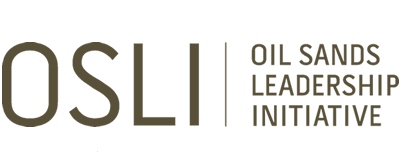
![]() University of Washington
University of Washington
![]()
![]()
![]()
![]()
![]()
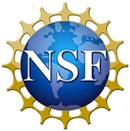
![]() Anaspec
Anaspec
 "
"



